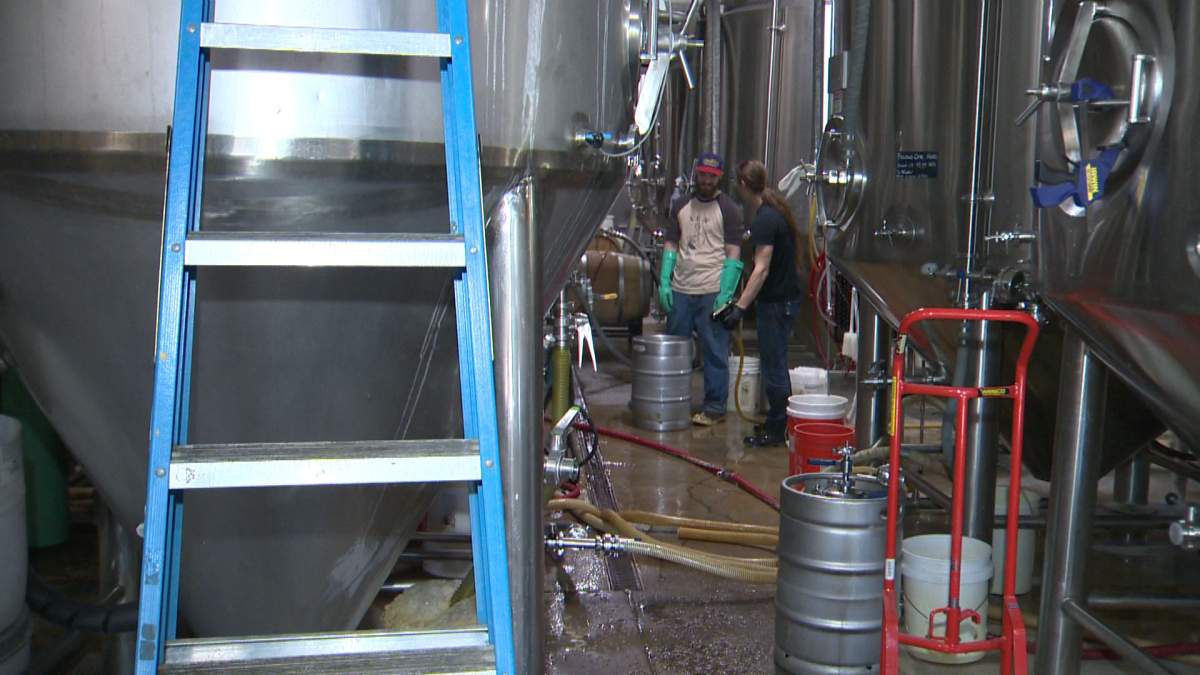Washington, D.C. — The Ivy City neighbourhood of Washington, D.C., is about as far removed from bureaucracy as you can get in a government town.

The once-neglected industrial area is now a hotbed of microbreweries, distilleries and restaurants — not the kind of businesses that typically come to mind in a city that revolves around the congressional calendar.
But tucked inside an old warehouse, Atlas Brew Works finds itself intimately connected to the U.S. government shutdown, right alongside the tens of thousands of furloughed workers who call the city home.
Atlas obviously isn’t a government agency, but it relies on one: the Alcohol and Tobacco Tax and Trade Bureau, or TTB, which is currently closed.
WATCH: Bloomberg slams Trump over government shutdown amid rumours of 2020 presidential bid

“We’re trying to figure out what we’ll do with the beer if the TTB does not reopen,” explained Atlas CEO Justin Cox.

Get breaking National news
The TTB is responsible for approving alcohol labelling. Each one of Atlas’ unique seasonal brews requires new labels indicating its alcohol content and government warnings.
“We have to go through that agency for approval before we’re able to pack a beer into a new package,” explained Cox.
Right now, that means a specially brewed apricot IPA called The Precious One can’t be emptied into kegs or cans for distribution.
It was supposed to hit store shelves and local bars by Feb. 1. Instead, approximately 4,500 litres of beer inside a fermentation tank are stuck in limbo, and the clock is ticking.
“Beer is a perishable item,” said Cox, explaining that even if the government shutdown ends soon, a backlog of applications means it will take six to eight weeks to get the new labels approved.
“We might run into a situation where we have either a couple of weeks left of that beer being good to go to market, or maybe not at all,” he said.
WATCH: Global News coverage of the U.S. government shutdown
In other words, those suds may end up in the sewer.
Many of the approximately 7,000 breweries in the United States face a similar fate.
Existing brands with labels approved before the shutdown can still go out the door, but any new beers from the burgeoning craft beer market are effectively stalled.
And brewers in the U.S. capital face a double whammy because of the huge number of furloughed federal government workers who are also customers.
“There’s been a general slowdown in D.C., just with, obviously, the uncertainty of whether people are getting paid,” said Cox, explaining that beer sales have slowed at bars, restaurants and stores.
“People are really tightening their belts, and the frustration is building,” he said.
- China drops visa requirement for Canadian tourists, business visitors
- Inuit look to Greenland’s social model as Canada pursues military buildup in Arctic
- Epstein files fallout: People who’ve resigned or been fired after DOJ release
- Europe looks to boost its security, urges U.S. to ‘repair and revive trust’












Comments
Want to discuss? Please read our Commenting Policy first.